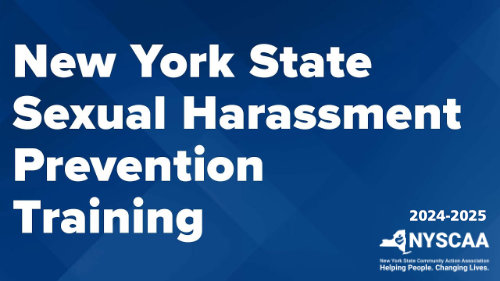Hello and welcome to the New York State Sexual Harassment and Discrimination Prevention Annual Training.
Throughout this training, you'll be asked to participate in a number of interactive case studies and exercises to help you better understand sexual harassment and discrimination, and what you should do if you experience or witness sexual harassment or discrimination. Sexual harassment and discrimination are phrases that we all have heard, and may mean different things to different people, depending on their life experiences. But there is a legal meaning that governs workplaces in New York State, that sets a standard we all need to understand and follow, and that's what we're going to talk about today.
The purpose of this training is to set forth a common understanding about what is and what is not acceptable in our workplace so all employees can recognize discrimination and understand their rights to a safe workplace.
Before you begin the video, feel free to visit https://www.ny.gov/sites/default/files/2023-04/Sexual_Harassment_Prevention_Training_Answer_Sheet.pdf to download or print the training's accompanying form so you can track your answers to the questions asked during each case study. After you’ve completed the video, continue to the end and answer any and all questions in this training assessment.
For more information on this training and New York State’s workplace sexual harassment policy, visit ny.gov/programs/ combating-sexual-harassment-workplace.

- Editing Trainer: Alexis Rivera